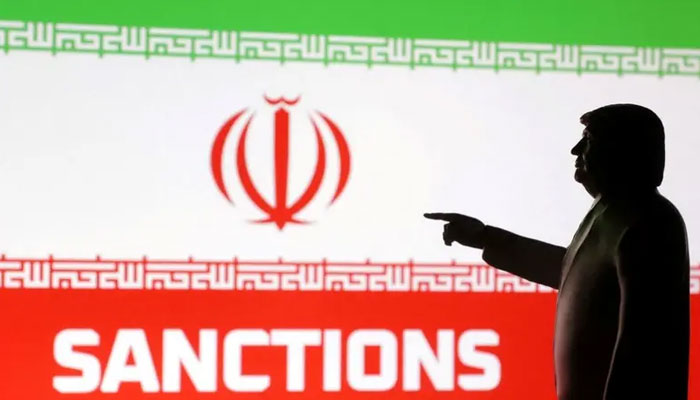
WASHINGTON: US President Donald Trump has stepped up pressure on Iran by launching a wide set of new sanctions against more than 100 individuals, companies and ships linked to the country’s oil trade.
US Treasury Department announced fresh sanctions, saying the move is meant to choke off funds that help support Iran’s government, especially after recent strikes on its nuclear sites.
Officials said that this is one of the biggest actions taken against Iran in years. The sanctions broadly target the shipping interests of Mohammad Hossein Shamkhani, the son of Ali Shamkhani, who is himself an adviser to Supreme Leader Ayatollah Ali Khamenei.
The US Treasury described it as the most significant Iran-related sanctions action since 2018, during President Donald Trump’s first administration.
According to the US Treasury Department, Shamkhani controls a vast network of container ships and tankers through a complex web of intermediaries that sell Iranian and Russian oil and other goods across the globe.
The Treasury accused Shamkhani of using personal connections and corruption in Tehran to generate tens of billions of dollars in profits, much of which is used to prop up the Iranian regime.
Overall, the new sanctions target 15 shipping firms, 52 vessels, 12 individuals, and 53 entities involved in sanctions evasion across 17 countries — from Panama to Italy to Hong Kong.
A US official said the sanctions would make it “much more difficult” for Iran to sell its oil, though the administration did not expect any long-term disruption to global oil markets.
The official added that Iran’s oil exports had already fallen to around 1.2 million barrels per day, down from 1.8 million at the start of the year, following previous sanctions rounds aimed at Iran’s oil sector.
“We’re still pursuing further action to bring that number down even more,” the official said, noting that sanctions during Trump’s first term had reduced Iranian oil exports to just a few hundred thousand barrels per day.
An Iranian foreign ministry spokesperson called the sanctions “a clear example of America’s hostility towards the Iranian nation,” according to the country’s Student News Network.
The spokesperson, Esmaeil Baghaei, added that the sanctions were “an evil act aimed at harming Iran’s economic development and the welfare of its people.”
China remains the largest buyer of Iranian oil.
Earlier in July, the European Union also sanctioned Shamkhani over his involvement in the Russian oil trade.
A US official said Wednesday’s action would impact both Russia and Iran, but stressed that the focus remained on Iran.
“From our perspective, given where this individual fits, given his connection to the Supreme Leader and his father’s previous sanctions activity, and under the Iran-related authorities, this is clearly an Iran action — meaningful and impactful,” the official stated.
Ali Shamkhani, Mohammad Hossein Shamkhani’s father, was sanctioned by the United States in 2020.
The latest round of sanctions comes as hopes for renewed US-Iran diplomacy remain slim, following last month’s US bombing of Iranian nuclear sites.
Trump warned on Monday that further US attacks would follow if Tehran tried to restart the nuclear sites that were previously struck.
He also said Iran had been sending out “nasty signals” and warned that any effort to resume its nuclear programme would be immediately quashed.
The United States had held five rounds of talks with Iran prior to the June airstrikes, which Trump claimed had “obliterated” a programme that Washington and its ally Israel argue is aimed at building a nuclear bomb.
Some experts have questioned the extent of the damage. Iran denies it is seeking a nuclear weapon.
A senior White House official said last week that Washington remains open to direct talks with Iran. But European and Iranian diplomats say there is little chance Tehran will return to negotiations with the US any time soon.











